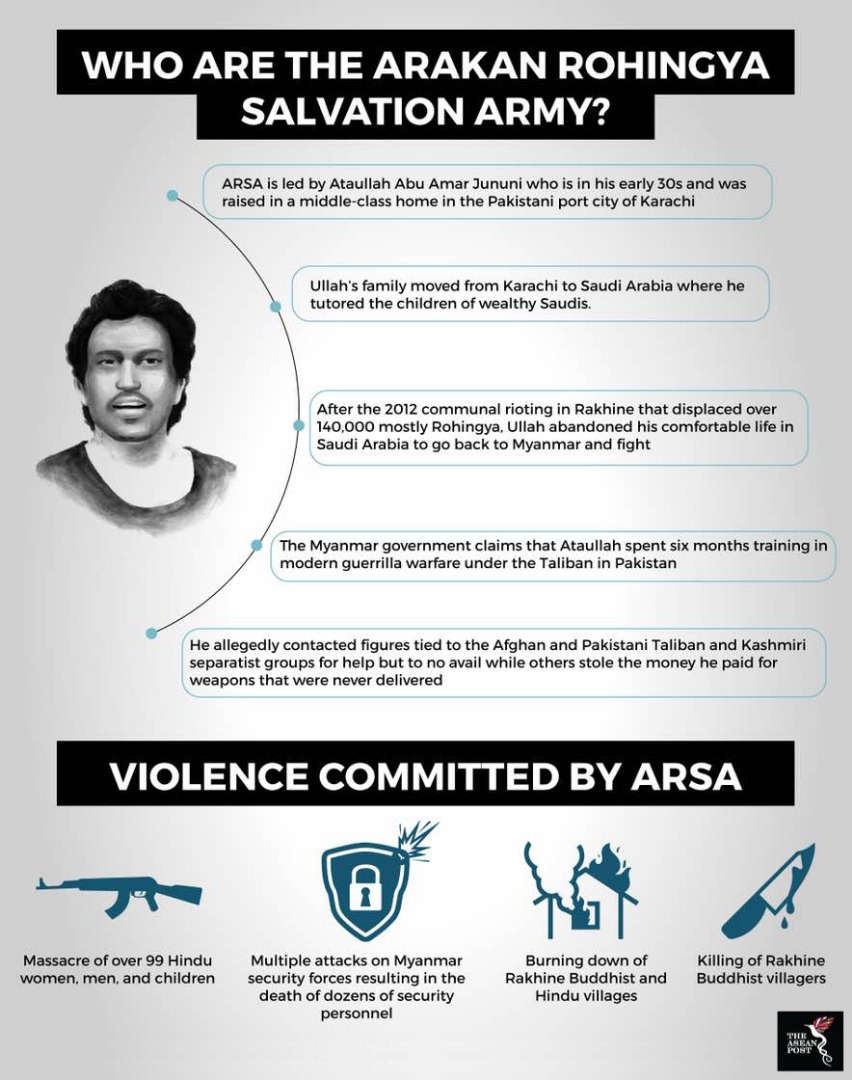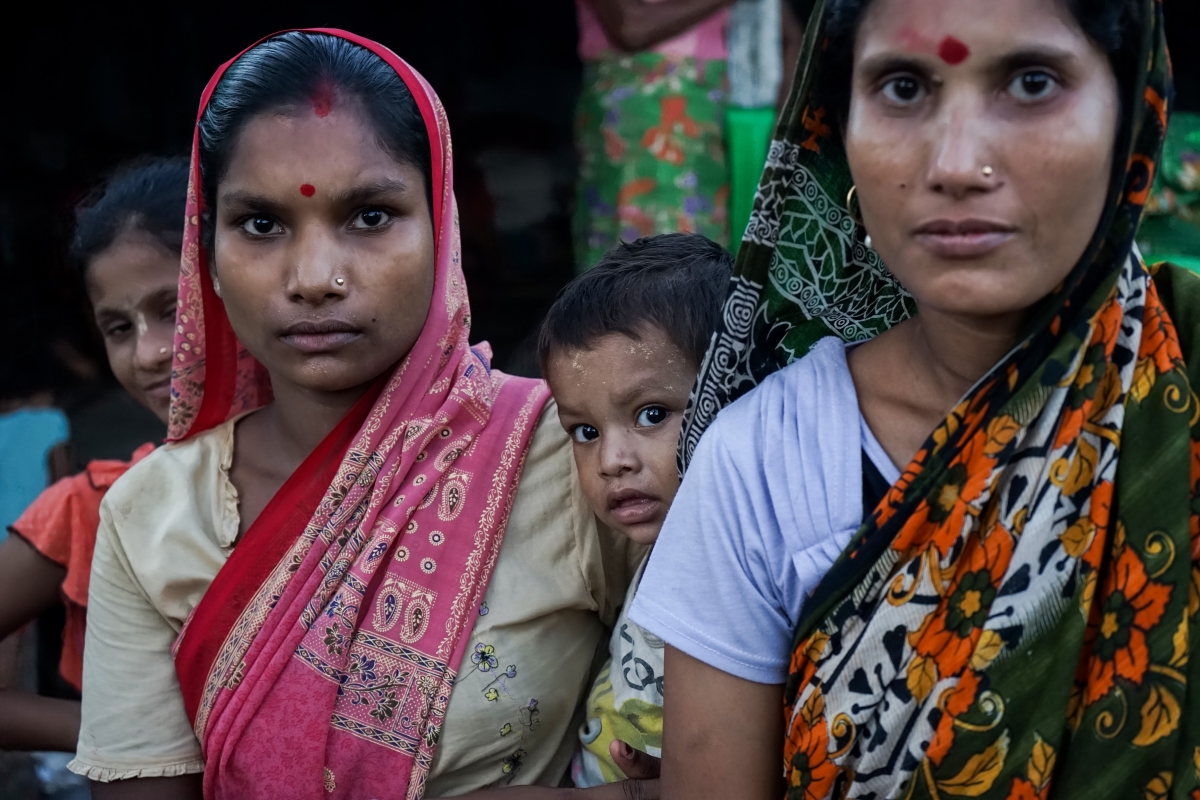Armed Rohingya militants have been responsible for at least one – and potentially two – massacres of up to 99 Hindu women, men, and children, according to Amnesty International. They also committed unlawful killings and abductions of Hindu villagers in August 2017.
The London based non-governmental organisation (NGO) revealed this after a detailed investigation inside Myanmar’s Rakhine State was carried out. It helped shed light on the largely under-reported human rights abuses by Rohingya militants during the recent humanitarian crisis in Myanmar’s Rakhine state.
ARSA’s brutality
On 25 August 2017, members of the Arakan Rohingya Salvation Army (ARSA) attacked a Hindu community in the northern Maungdaw Township. After first robbing them, some victims were then taken to the outskirts of the village where ARSA fighters brutally killed 53 Hindus, execution style.
Bina Bala, a 22-year-old woman survivor of the massacre, recounted her experience to Amnesty International:
“[The men] held knives and long iron rods. They tied our hands behind our backs and blindfolded us. I asked what they were doing. One of them replied, ‘You and Rakhine are the same, you have a different religion, you can’t live here. He spoke the [Rohingya] language. They asked what belongings we had, then they beat us. Eventually I gave them my gold and money,” she said.
Witnesses to the events also told Amnesty International that ARSA members didn’t even spare the women and children.
“I saw men holding the heads and hair [of the women] and others were holding knives. And then they cut their throats,” one of the survivors said.
The same day, some 46 Hindu men, women and children from a neighbouring village also disappeared, with many presuming that they soon died at the hands of ARSA fighters. Combined, the final death toll of ARSA’s massacre is believed to be 99.
Who are the Arakan Rohingya Salvation Army (ARSA)?
ARSA is a ragtag cell of operatives armed with farm tools and improvised explosive devices (IED) led by Pakistani born Ataullah Abu Amar Jununi. Jununi, who later moved to Saudi Arabia led a comfortable life there as a tutor for the children of wealthy Saudis but decided to abandon his opulent lifestyle to fight for the Muslim Rohingya in Rakhine State.
The Rohingya are a Muslim majority group living in Myanmar’s northern Rakhine State who have been denied citizenship rights, effectively rendering them stateless. For many decades, they have faced persecution from the Buddhist-majority Myanmar government, causing them to flee the region to neighbouring countries like Bangladesh and Malaysia.

Source: Various sources
ARSA – which claims to fight for Rohingya Muslims – has been active since 2013 but only entered the limelight after claiming responsibility for attacks on police and army posts in Rakhine State, which, according to the government resulted in 12 security officers being killed. The attacks which occurred in the early hours of 25 August 2017, prompted a brutal crackdown on the Rohingya by the military forces of Myanmar (Tatmadaw) which the United Nations (UN) deemed “a textbook example of ethnic cleansing.”
ARSA has since been classified as a terrorist organisation by the Myanmar government but it has denied any links to foreign terrorist groups like Al-Qaeda and the Islamic State. These and similar organisations have continually issued statements of solidarity with ARSA and have called directly for jihadi attacks on Myanmar and its leaders.
Are ARSA’s actions justifiable?
The group has come under fire for their attacks – even by Rohingya Muslims themselves – for bringing untold misery to those already suffering from the Tatmadaw’s brutal retaliation for their actions.
They have previously been blamed for attacks on civilian Rakhine Buddhists which was perceived as a tit-for-tat reaction to the persecution they face from the Buddhist-majority government. However, it now seems that ARSA’s motivations have shifted to instilling fear in the hearts of villagers there.
“ARSA’s appalling attacks were followed by the Myanmar military’s ethnic cleansing campaign against the Rohingya population as a whole. Both must be condemned – human rights violations or abuses by one side never justifies abuses or violations by the other,” said Tirana Hassan, Crisis Response Director at Amnesty International.
Survivors of the massacre said that they were forced to deny that the ARSA militants were perpetrators of the bloodbath. This led to inconsistencies in their testimonies when they were interviewed by foreign journalists and human rights investigators. Amnesty’s report concluded that this was done so that ARSA could cover up their brutal crimes and distort the narrative of survivors.
If this horrifying experience has taught us anything, it is that violence only begets more violence. ARSA’s actions are categorically wrong and should be condemned vociferously by the international community.
The humanitarian crisis in Myanmar is deeply rooted in an ethnic struggle that has since spiralled out of control because it has been allowed to fester with no solution in sight. This would explain the radicalisation of ARSA fighters who may not be able to see any other palpable solution to their struggle. Sadly, resorting to violence opens up room for further exploitation of innocent victims, making the waters of resolution murkier.
